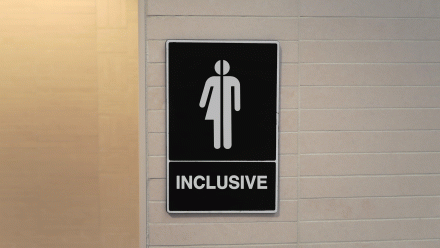What Is Gender Identity?
Traditionally, a person’s gender was determined at birth. Today, some individuals assert that their gender identity differs from their biological sex. For instance:
- A person born biologically male may identify as female or vice-versa.
- Such individuals are commonly referred to as transgender.
- Some pursue surgical or hormonal treatments to modify physical traits—others do not.
Federal Guidance on Gender Identity in Schools
Federal guidance on gender identity in schools has swung widely based on presidential administrations. Understanding these positions can give some insights to churches regarding how local, state, and federal government agencies view this issue.
But the positions often conflict based on political power.
For instance, under the Obama administration in 2016, the Civil Rights Division of the US Department of Justice (DOJ) issued a letter to schools receiving federal financial assistance under Title IX of the Education Amendments of 1972. Key points included:
- Schools must provide a safe, nondiscriminatory environment for all students, including transgender students.
- Failure to comply may lead to the loss of federal funds.
- A religious exemption exists—with qualification: “An educational institution controlled by a religious organization is exempt from Title IX to the extent that compliance would not be consistent with the religious tenets of such organization.” (DOJ Letter, 2016)
Restroom and Locker Room Access
According to the DOJ under Obama:
- Schools may separate facilities by sex, but must allow access based on gender identity.
- Transgender students cannot be forced to use facilities inconsistent with their gender identity.
- Individual-user facilities may be offered—but only voluntarily and equally.
However, federal positions on the matter have since shifted, most recently under President Trump’s second term.
Federal Guidance under the Trump Administration
Under President Trump’s second term, the DOJ has taken a sharply different turn on interpreting Title IX with respect to transgender students.
For instance, in a May 2025 letter to the state of California, the agency indicated it was opening an investigation into the state’s policy allowing transgender students to access facilities and participate in sports based on the gender they identify with.
In a press release announcing the letter, the agency quoted Harmeet K. Dhillon, Assistant Attorney General for Civil Rights: “Title IX exists to protect women and girls in education. It is perverse to allow males to compete against girls, invade their private spaces, and take their trophies. This Division will aggressively defend women’s hard-fought rights to equal educational opportunities.”
The press release also referenced ongoing litigation in California—Save Girls’ Sports, et al. v. Thurmond, et al.—which seeks to undo the state’s position.
How This Affects Churches
This is a sensitive issue and raises questions for many church leaders. The continued shifts in federal positions based upon political power, along with varying decisions in courts across the country, make the issue difficult to pinpoint.
Key Legal Concerns for Churches
Are churches legally required to:
- Let individuals use restrooms based on gender identity rather than biological sex?
- Accommodate transgender individuals with surgical or hormonal changes?
- Assign hotel rooms on church trips based on gender identity?
- Avoid employment discrimination based on gender identity?
Legal Uncertainty and the Public Accommodation Patchwork
Why the Answers Are Complicated
- Courts have not definitively ruled on many of these questions.
- The legal landscape is shaped by a patchwork of local, state, and federal laws regarding public accommodations.
Key Considerations for Churches
To evaluate their legal standing, churches must consider:
- Are we considered a “place of public accommodation”?
- Some laws include churches, even without facility rentals.
- Others exclude churches that limit use to members or religious activities.
- Does the law ban discrimination based on gender identity?
- Is there a specific exemption for religious institutions?
- Are the exemption conditions fully satisfied?
- What constitutional protections apply?
General Legal Trends
- Churches that restrict access to members only tend to enjoy greater constitutional protections.
- Churches that rent space to the public for non-religious or revenue-generating events are more likely to be seen as public accommodations.
- These churches may be subject to nondiscrimination laws, including those related to gender identity.
Tax Exemption Analogy: A Helpful Comparison
Some legal scholars compare public accommodation status to property tax exemption rules:
- Churches generally lose property tax exemption when renting to outside groups for revenue.
- Churches that allow free use of space (e.g., as a polling place or for community events) typically retain their exemption.
Implication:
If charging a fee may trigger tax liability, it might also support a classification as a public accommodation. Free use, by contrast, likely does not—but this analogy is not definitive.
Membership and Legal Protections
Can a church deny membership to a transgender individual?
Supreme Court Precedents Say:
- Watson v. Jones (1871): Courts cannot review internal church decisions about faith, discipline, or membership.
- Bouldin v. Alexander (1872): Civil courts have no power to decide who should be a member.
- Serbian Eastern Orthodox Diocese v. Milivojevich (1976): Churches can create internal tribunals to resolve disputes. Courts must honor those decisions.
These rulings give churches strong protection over discipline of members, but less clarity when it comes to nonmembers.
Final Thoughts for Church Leaders
- Legal definitions and protections vary by jurisdiction.
- Churches should regularly review the text of applicable public accommodation laws.
- Consult qualified legal counsel to assess risk and ensure compliance.
We’ve used a combination of AI and human review to make this content easier to read and understand.





